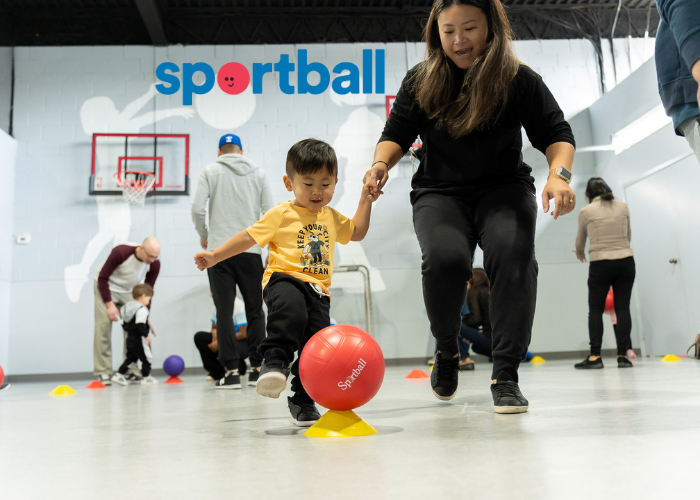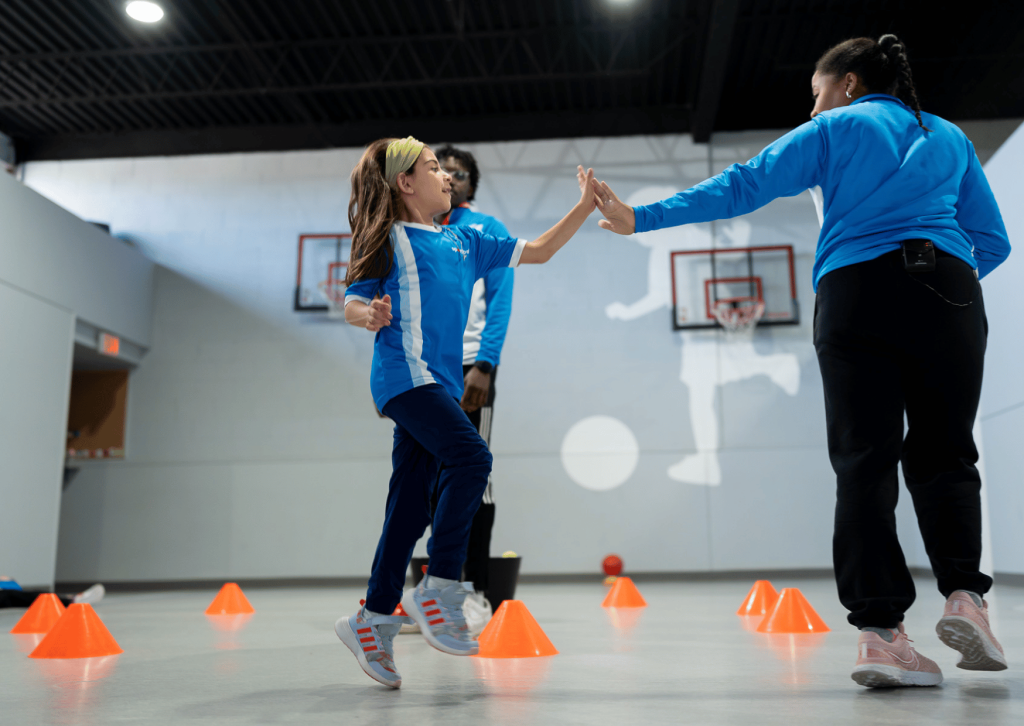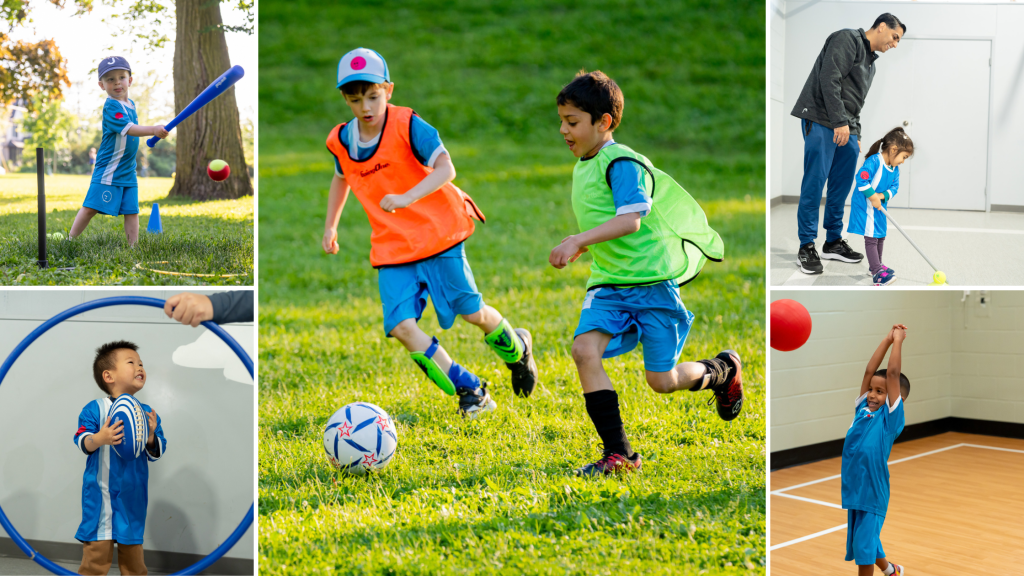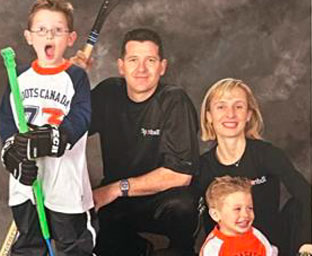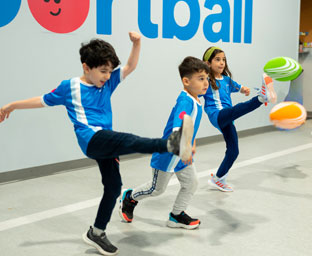1) Every child develops according to his/her own rhythm
Every child attends the program with his/her unique physical and social ability. At this stage of development, a few months makes the world of difference. Guide your child according to their abilities and not according to those of the future Michael Jordan or that of a cousin or brother that you believe may be more gifted. Highlight their own individual abilities. Sometimes a child takes one to three classes, or even more, before perfecting basic skills. Be patient and give them the time they need to get there.
2) Lead by Example (even if it may seem ridiculous)
When I coach, I love making children laugh by imitating animal sounds, telling stories and having them repeat certain keywords to keep their attention.
I invite parents to enter our little imaginary world. Do not be afraid of ridicule and especially turn off your cell phone! Pay attention to your child and help them with their movements. Enjoy this precious time with your child and be totally present and focused on him/her.
3) Keep your encouragement positive
If the instruction is to hit the ball with their hand and your child instead kicks it with his/her foot, praise them anyway and give your child a big “high five”.
If your child was able to hit the ball, it is because he/she has already assimilated part of the instruction. This is already a success in itself.
Be patient, your child will succeed. Never forget that a simple skill for us can be very complex for a child. Keep in mind your child’s age. Focus on participation and fun, not perfection. Your child’s confidence and enjoyment will increase tenfold.
4) “But my child is shy”
I hear this comment at least two, three or even four times per class. It may very well be that your child is embarrassed, but repeating it to the coach or other parents will not help the situation. Children take their time. They go at their own pace. We must not impose our own expectations. ” So, what do we do,” you may ask? “Do we wait patiently for him to be ready?” On the contrary, I recommend being proactive.
Lead by example – participate in class and repeat the keywords. Follow the instructions. Emulate the exercises. He will eventually join in with you.
5) Have Fun!
The best way to help your child is to be 100% present, nothing less. Forget your problems at the office or what you should cook for dinner.
Take the opportunity to disconnect. Have fun, laugh, participate and take your child in your arms. Give him “high fives”.
Tell him that you love him! You are both here to have fun. Your child “THANKS YOU” even if he/she does not always have the words to say it.
Time flies and soon they will be too big for a parent-child class! Enjoy the moment!
